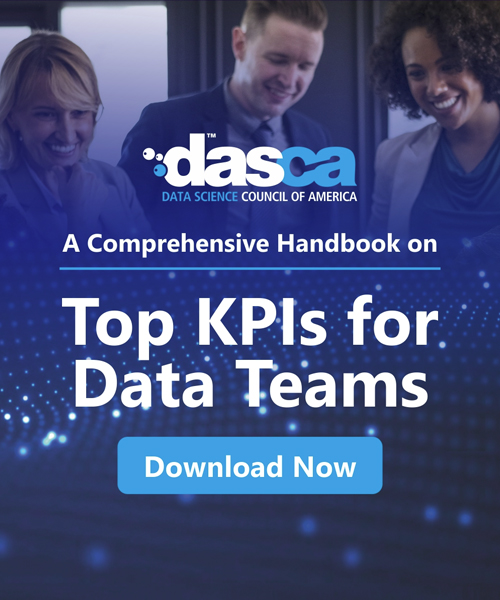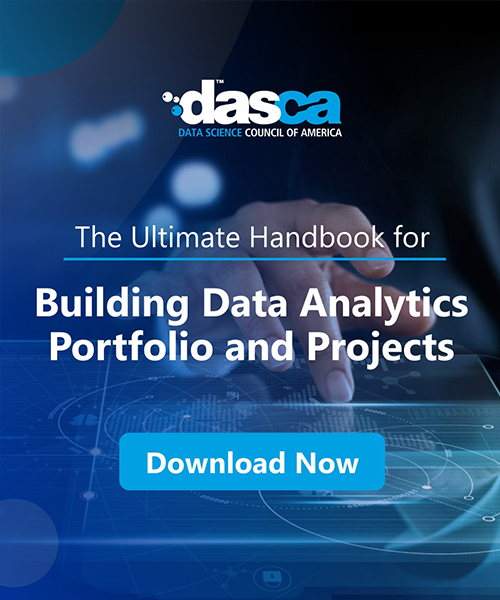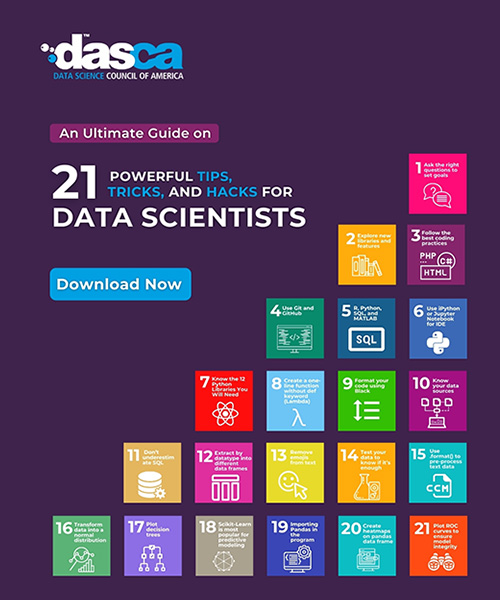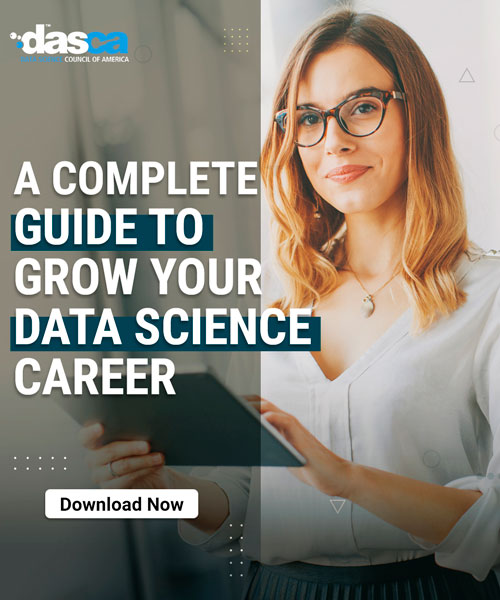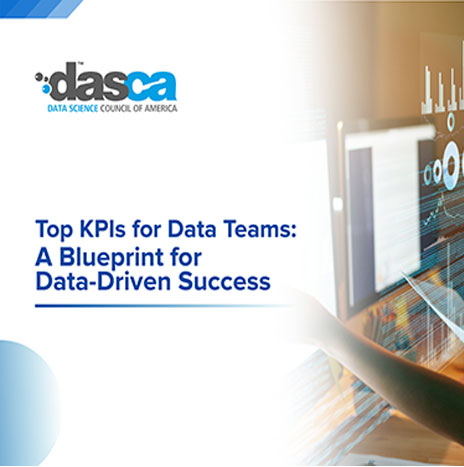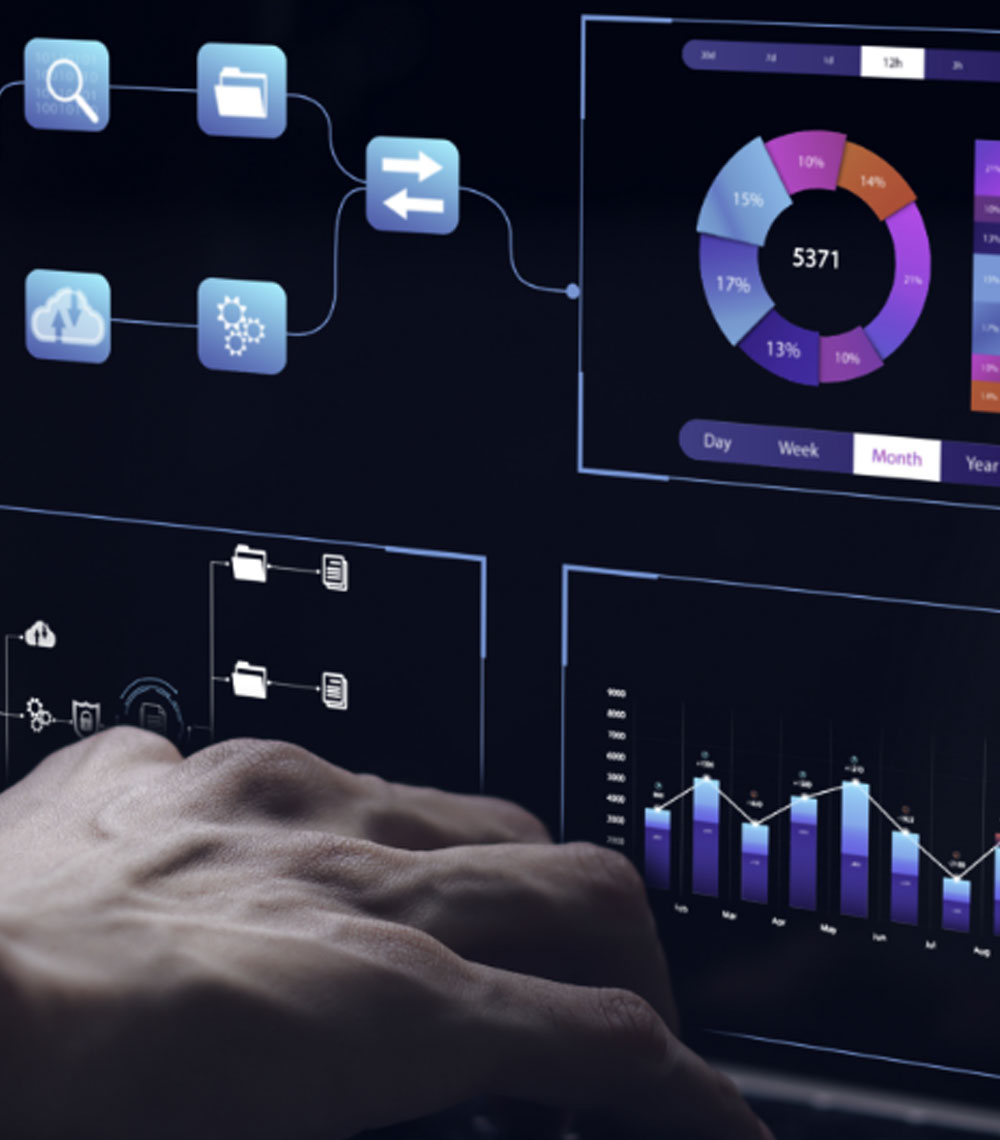
As per Dr. Kelly from IBM, the big data is most valuable, abundant and complex raw material of our globe. But until now, we have not mined it.
Data science revolves around enabling insights from both structured and unstructured data. The data science specialists use statistical, mathematical and other scientific methods and computer algorithms to analyze big data and extract information from it. They also remove various business obstacles by eliminating negative aspects and causing significant revenue generation. The in-depth knowledge of data specialists is undoubtedly a way to excel in business in a well-planned and scientific way.
Even if the firm knows how to interpret the gathered data, a data science specialist can enable the firm dig deeper and make things clearer. This is especially crucial when it comes to unstructured data. These specialists have knowledge and skills in data visualization, data mining, machine learning and programming. Thus, data specialists prove quite valuable for the firms.
Six powerful ways a data scientist amplify business values, and thus increase firm’s stand and profitability.
These languages hold wide applicability in the data science world:
1. Defining company's business goalsA data science specialist applies advanced business analytics to gain insights from the past performances of the firm. The specialists mine the firm's data and thereby conduct statistical and quantitative analysis. Next, the data is sorted and studied. Many other processes also take place, but this is the gist of it.
As soon as the data science specialists extract information from the business analytics, they can provide the firm understudy with actionable advice and a better goal definition.
The specialists' insights that are thus, gathered enable the improvement of the business unit's overall performance and improve profitability.
When Formulating a strategy
The strategy should be formulated in such a way that it has clear objectives. Thus, a data scientist should be able to tell:
- Where the focus should be,
- What can be defined as an “early win,” and
- How it can be applied to build momentum and enthusiasm.
The decisions related to the business must be based on accurate data. This alone can assure monetary success. Thus, data science enables the firm to profit by making better business decisions.
Applying data analytics makes it possible to better depict and understand the issues at hand and thereby identify the possibilities.
Using great value predictive models, one can know various situations likely to arise and find the best possible solutions.
When the data is regularly recorded and then analyzed, a data science specialist can uncover the trends that for ultimate business growth. To achieve this keeping in loop the following: automation efficiency and AI, social computing and opinion mining.
Automation efficiency and AI
The automation efficiency of AI has far overcome the limitations imposed by past methods. This is especially true for distribution and marketing, where AI has speed up the processes and can make decisions with good insights.
To take an instance of marketing, the automation of campaign management and market segmentation with AI enables more effective, and efficient ways of taking valuable decisions and digging appreciable information. It gives an insightful peek into the customers, and deconstructs ways to enhance the interaction quotient with them. Marketing automation is the chief feature of most good CRM applications.
Social computing
Social computing enables marketing professionals understand the social behavior and dynamics of the specific market. With the application of AI, they can analyze, simulate and also predict customer behavior.
Opinion Mining
Opinion mining is a type of data mining that searches the internet for feelings and opinions. It is a method by which a data specialist can know about how the target consumers receive a specific product. Manual analyses and mining require one to work for long hours. AI has resulted in shortening this period through reliable analyses and search capabilities.
3. Converting the data into actionable insightsIn data-driven firms that are successful, the data doesn't only rest in data science specialists' hands. The data scientist has a significant role in how the raw data is translated into insights. These insights can then take the shape of actionable application.
As per Forrester, almost 38% of the firms struggle with the communication and interpretation aspects of data analytics.
This inability to communicate and understand data well is hurting point of the organizations. And a data specialist can address them successfully.
The six steps of transferring information into insights
1. Work on business analytics:
A firm’s analytics insights should be set in because it acts as a fuel for the business strategy. This should be evolved in the business to grow beyond just the reporting thing.
2. Write a story:
The data should tell a story with the help of flexible integration of information and multiple data types. Your presentation should not be restricted to having the data into a predefined model alone.
3. Play with the right tools:
Infrastructure and technology should be built to support the business analytics ecosystem, including AI and insights using analytics-as-a-service (AaaS).
4. Include the leaders:
It is important to establish an operating model by taking ascent of the top leaders to empower the application of analytics and data.
5. Create a process:
To make sure that insights can be quickly integrated into decisions through the agile, aligned process.
6. Prepare your people:
Develop a data-driven culture by training talent to make a good blend of business with data analytics at all levels.
4. Identifying opportunitiesData science specialists understand how the advanced algorithms and additional methods can be used to improve the product. And this is the reason they are sometimes contacted contractually for this sole purpose. Because of their guided product development, it becomes possible for the organization to improve.
At its core, they leverage AI, which is at the intersection of Data, Decisions, and Technology.
Data: Data is the fuel for AI-driven algorithms. Thus, good sourcing of data is important to realize an opportunity.
Decisions: The aim of AI is to help people take better decisions. Thus, what one needs is the identification of the right problems to find effective solutions.
Technology: The recent period of progress in AI technologies has been great but it’s not over. One must keep pulse of the industry and gain access to new technological efficiencies.
5. Adding RevenueData science can be used to explore and refine a target customer group and thereby generate revenue. For example, in sales, specifically, lead management, it is possible to analyze customer response using models. This score results in improved sales efficiency. Additionally, the past customer data can be applied, interaction at the social media platform is also used in modeling.
The firms that used artificial intelligence along with data science for scoring and lead management had a 50% increase in appointments and almost 60% reduction in the call time.
Improved leads close sales sooner, and this results in creating more revenue.
6. Reducing Costs and Managing RisksNo data science projects are conducted just for research purpose. They are committed to solve active problems a firm might be facing to increase revenue or reduce costs. For instance, for Airbnb, marketing specialists believed that one of their campaigns had bad metrics. A data science specialist found that the root cause of the problem being a group in Asia, which was using their site to browse the neighborhood. The marketing specialists redirected the group to a travel website. This cleared the marketing metrics and also saved resources that would have been needed for launching a new marketing initiative.
The two main aspects where data analytics and AI can enable a significant reduction in business’ bottom-lines.
Thwarting and monitoring cyber attacks
AI applying Machine Learning and Pattern recognition helps security, and IT teams monitor network health for the entire day and night. It scans tens of thousands of daily alert logs (which is a big data of various number values) of suspicious activity. This results in a reduction in threats and helps cyber defenses. AI can even play an important role in automating processes and thereby helping in the identification of cyber-attacks.
Customer experience improvement
AI-driven analytics results in the consolidation of not only consumers’ data but also provides an insight into several sources like real-time details from several consumer touchpoints. This can be achieved by applying a custom API.
Wrap upWhen the company's data is regularly collected, analyzed and interpreted, the data scientist can reveal the trends and make it possible to come up with solutions to the problems in business. The data analysis makes it possible to critically interpret and thereby understand the complete subject-matter and make several possibilities for the company.




















